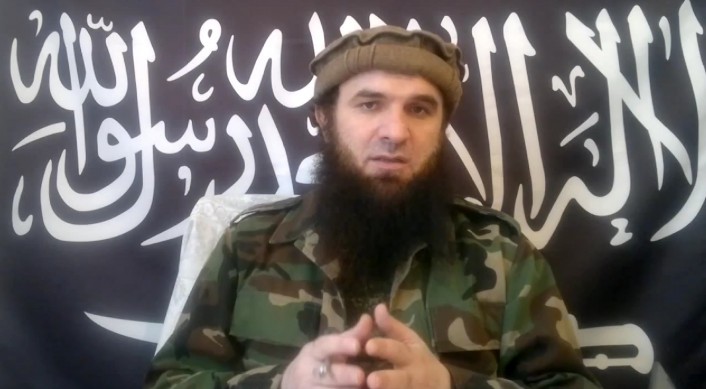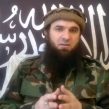
The Epicenter of the Insurgency—A Net Assessment of the Situation in the Northeast Caucasus Since the Start of 2014
Publication: Eurasia Daily Monitor Volume: 11 Issue: 182
By:

The ongoing transformation of the armed Islamic opposition in the North Caucasus is one sign of the deepening crisis in the region. The transformation is taking place against the backdrop of the establishment of a military center for the militant movement in Dagestan proper (Kavkazsky Uzel, September 17). In 2014, Dagestan became the political center of the armed resistance movement after the confirmation of the death of Caucasus Emirate leader Doku Umarov and following his replacement by Dagestani Sheikh Abu Muhammad (Aliaskhab Kebekov) (Kavkazsky Uzel, gazeta.ru, March 18; kavkazcenter.com, July 24).
Observers who follow events in the North Caucasus could not explain the rebel attacks in the area of Pyatigorsk and Volgograd at the end of 2013 and the insurgency’s apparent lack of interest in launching an attack during the Sochi Winter Olympics—an extremely high-profile event that was actually held in the North Caucasus. Nothing happened despite a vow made by Umarov in the month of July the year before that his organization would disrupt the Olympics in Sochi by any means possible (novayagazeta.ru, July 3, 2013); Russia managed to hold the Games fairly successfully. When reflecting on why no attacks occurred at the Sochi Olympics, one can conclude that the new leader of the North Caucasus insurgency who replaced Umarov may not have approved of terrorist attacks in which civilians might suffer. Specifically, Abu Muhammad, the new head of the Caucasus Emirate, may have opposed suicide bombings and hostage-taking (Kavkaz Uzel, July 2), and he, thus, could have vetoed rebel plans for attacks during the Olympic Games in Sochi.
With the change in leadership of the Caucasus Emirate the period of Chechen dominance of the North Caucasus armed resistance came to an end. Umarov, in his final years, was merely a symbol of the unity of the North Caucasian militants. The current leader is not only a symbol, but very active socially: for example, he responds to questions posed by followers (YouTube, May 24), makes bold statements about whom to support in Syria (izlesene.com, June 23), gives sermons and publishes them online (YouTube, March 24). The new insurgent leader Abu Muhammad does not need a religious advisor. As a graduate of Islamic institutions in Tunisia and Syria, he can afford not to pay attention to those who might reproach him for a poor knowledge of Islam. This was the weak side of Doku Umarov, who was forced to have someone by his side to help him in understanding Islamic norms.
To improve his position outside Dagestan, the new insurgent leader Abu Muhammad forced the leaders of the national jamaats across the region to pledge allegiance to him—not once but twice. The jamaats of Chechnya, Ingushetia and Kabardino-Balkaria swore their allegiance to Emir Muhammad for the first time when news arrived about Doku Umarov’s death. The second time they pledged allegiance to the new insurgent leader was in spring–summer 2014. The new emir of the Caucasus Emirate may have wanted to make sure he had the backing of local rebel groups before making declarations about the Islamic State of Iraq and Syria (ISIS—hence renamed the Islamic State) in Syria and about the need to refrain from terrorist attacks. However, he is not the only one who can preach Islamic norms to the militants of the North Caucasus. Abu Usman Gimrinsky (Magomed Suleimanov), the emir of the Mountainous Sector and qadi of Dagestan, also has started to make frequent statements via the Internet (vdagestan.com, June 1).
While the attention of researchers is riveted on militant attacks, they ignore the possible transformation of the Islamic armed underground of the North Caucasus through its merger with the Salafists who currently reject violence.
The past 15 years of war in the North Caucasus has shown that, above all, Russia values statistics. The rapid decline in the number of attacks by the militants in Kabardino-Balkaria and Ingushetia over the past several years is presented as a victory over the Salafists, which is not the case. From an insurgency standpoint, the North Caucasian militants simply have learned how to avoid casualties in its fight with the Russian security services. For example, Chechen authorities in Grozny rushed to declare the final defeat of the Chechen militants after Doku Umarov’s death (RT, April 4).
However, the Chechen militants published multiple videos that refuted the government’s claim and proved that their emergence from the underground is only a matter of time (YouTube, August 21). According to one Chechen rebel emir, there are 70–80 militants in the republic, which is not a small number given the fact that they have to live in the mountains. The suicide attack in Grozny on October 5, the Chechen capital’s City Day, (RIA Novosti, October 5), suggests there are groups that do not subordinate themselves to the leader of the North Caucasus militants, Abu Muhammad, who disapproves of such attacks. This lack of subordination is probably caused by the impossibility of establishing a reliable link between the insurgent leadership and the local Chechen militants.
The Dagestani jamaat is divided into sectors, which in turn are subdivided into local jamaats. Overall, there are hundreds of militants in the republic. Unlike the Chechen militants, few Dagestani rebels have to live in the mountains or forests; instead, they reside in regular settlements or urban areas. The number of Dagestani rebels does not decline despite the Russian authorities’ weekly reports that they have been eliminated.
Meanwhile, Russian officials continue to pressure the relatives and friends of the militants, which only expands the ranks of the armed resistance and of those who reject Moscow’s policy in the North Caucasus. Making the conflict worse are the arrests of popular Salafist preachers (vdagestan.com, October 9), the burning down of houses and harassment of villagers to force them to betray the militants (vdagestan.com, October 1), the destruction of houses belonging to relatives of those who have joined the underground movement (vdagestan.com, August 1), and so on.
Thus, 15 years since the start of the second Russian-Chechen war, Moscow could come up with nothing better than launching a terror campaign against all those who do not accept its policies in the North Caucasus. Moscow has failed to recognize that it bears greater responsibility for this conflict than the armed Islamic underground movement. And time is on the rebels’ side, not Moscow’s.




